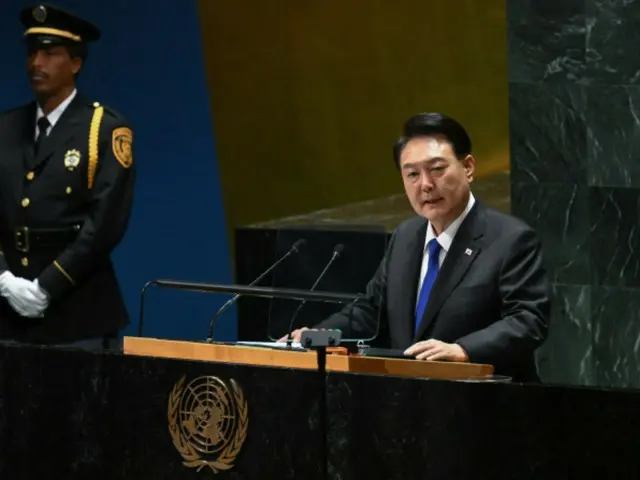A) was described as ``Ruhoku.'' President Yun, who is currently visiting New York to attend the 78th United Nations General Assembly, gave a keynote speech at the United Nations General Assembly on the 21st (20th local time) titled ``Russia and North Korea.''
"North Korea's military and nuclear deals are a provocation directly aimed at the security and peace of not only Ukraine but also the Republic of Korea." When criticizing both countries, he referred to Russia and North Korea in that order.
A senior official from the President's Office told reporters at the New York Press Center on the same day that, in response to a question about ``why he talked to Russia and North Korea rather than North Russia,'' he said, ``There is a possibility that it could give rise to various interpretations.''
``The South Korean government does not think it has to call out North Korea first.The primary criterion is the extent to which it cooperates with South Korea in terms of freedom and solidarity and the rule of law.''
Traditionally, government announcements and media reports have traditionally referred to both countries as ``Northern Russia.'' There are various speculations as to what President Yoon's intentions were with this change.
ing. The official explained, ``I think North Korea took a backseat because there was talk of North Korea cooperating with Russia and posing a more direct threat.'' Korean peninsula due to armed provocation
It is also likely that a critical view of North Korea, which threatens national security, played a role. Furthermore, President Yun's recognition of the conflict between ``liberal democracy and communist totalitarianism'' has led to a shift in foreign policy priorities.
can be seen to have changed. President Yun took the opportunity of the Association of Southeast Asian Nations (ASEAN) summit held earlier this month to refer to the three Northeast Asian countries as "Korea, China, and Japan," rather than "Korea, China, and Japan."
, and listed Japan before China. The President's Office explains that there is a general rule at the Northeast Asia Tripartite Conference, in which one's own country is listed first and the next chair country is listed first. However, more than this
There is a convincing argument that the normalization of Japan-Korea relations influenced the change in the notation.
2023/09/25 10:25 KST
Copyrights(C) Edaily wowkorea.jp 88

